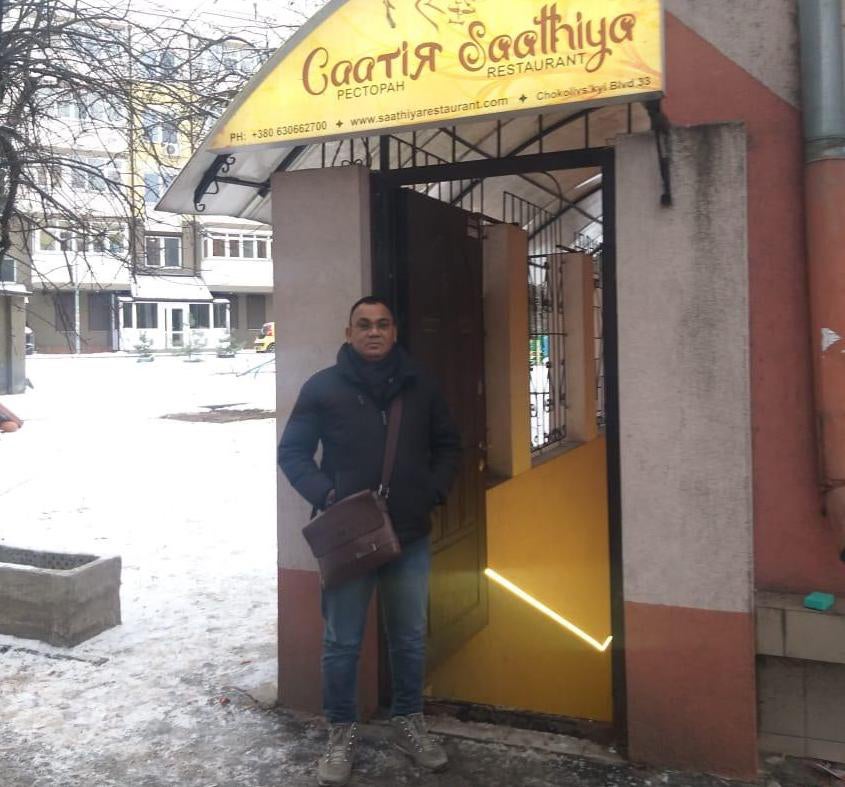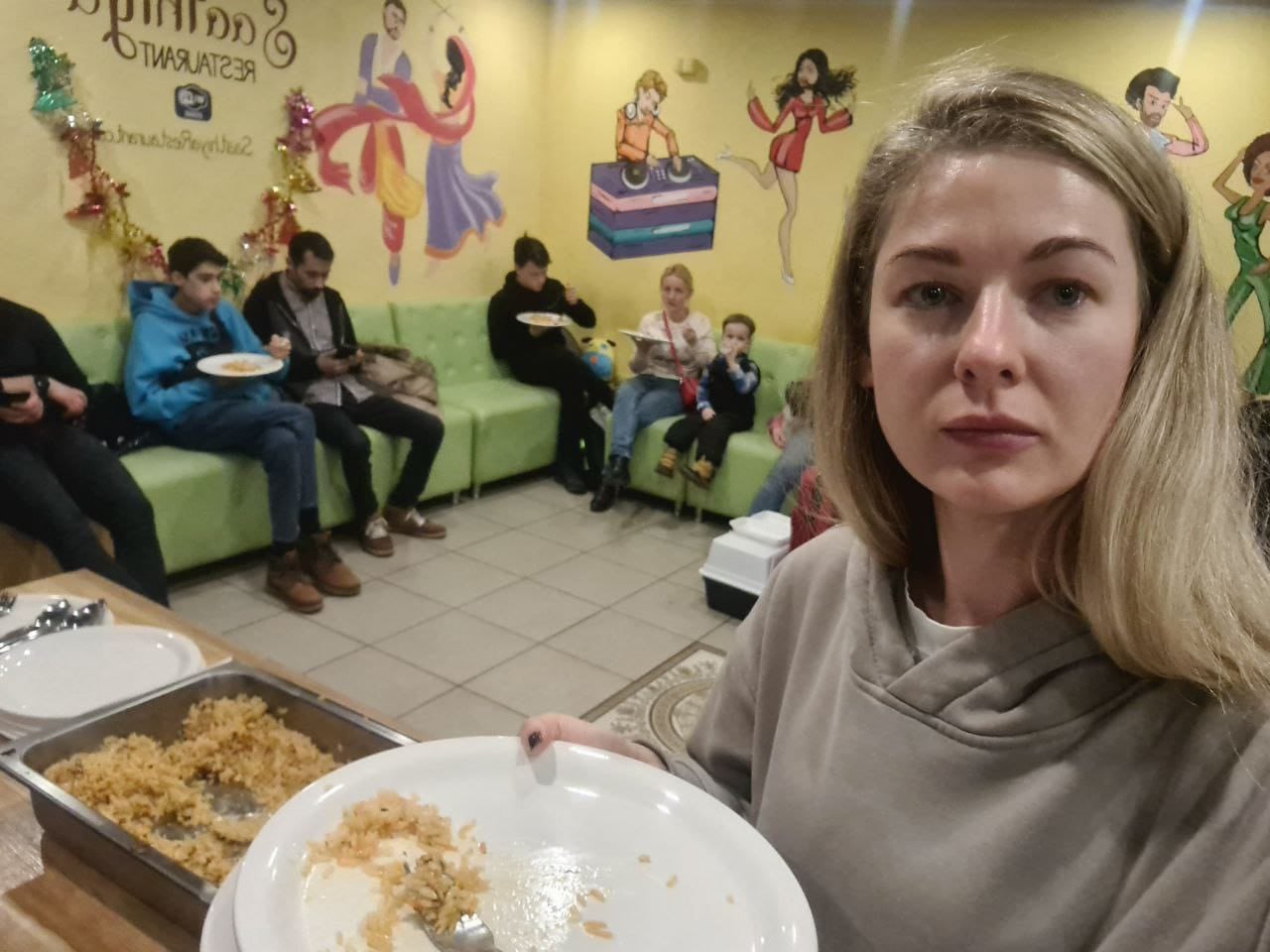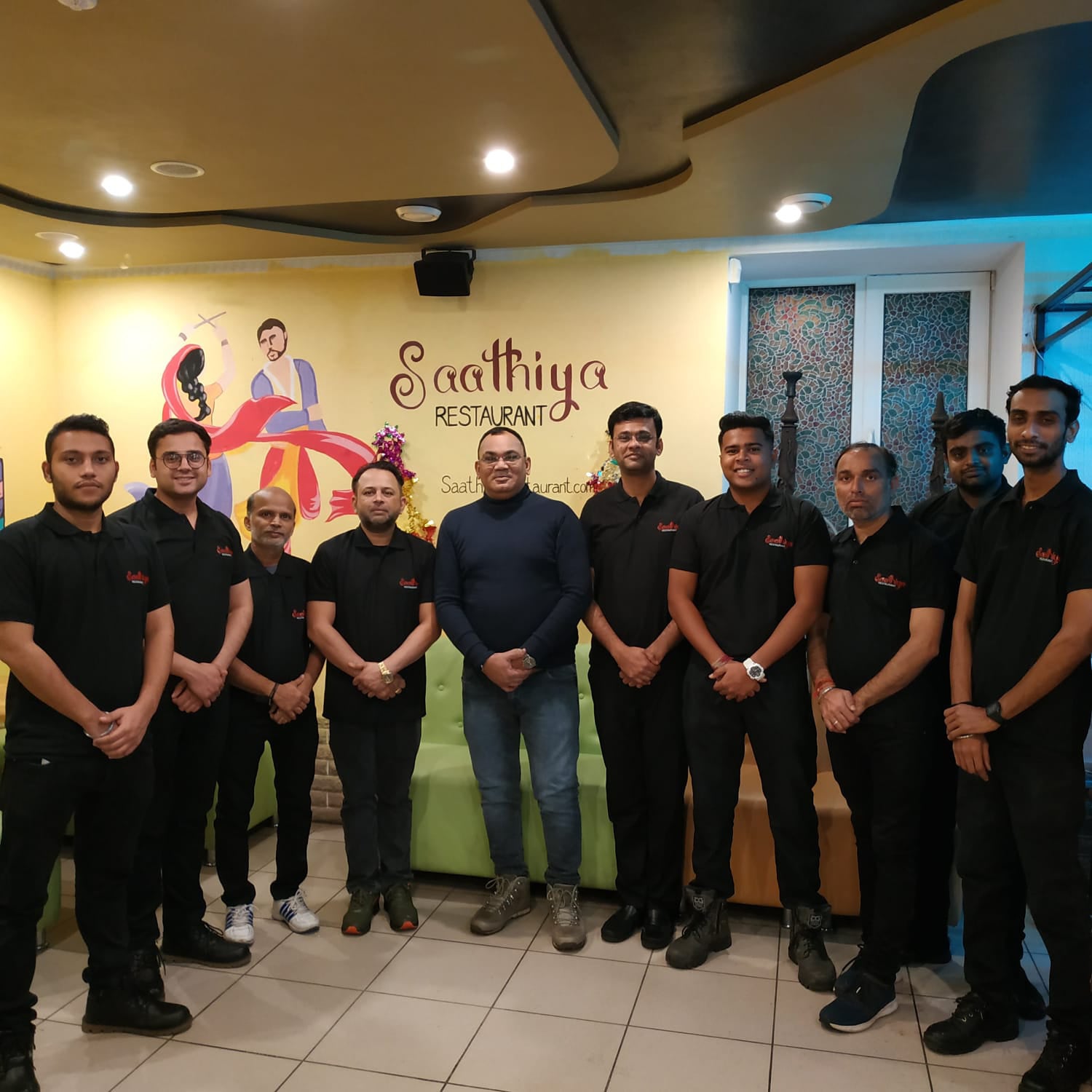The Indian restaurant sheltering and feeding the people of Kyiv
Sydney Page speaks to Manish Dave, who has helped over 130 people from the basement of his restaurant

Your support helps us to tell the story
From reproductive rights to climate change to Big Tech, The Independent is on the ground when the story is developing. Whether it's investigating the financials of Elon Musk's pro-Trump PAC or producing our latest documentary, 'The A Word', which shines a light on the American women fighting for reproductive rights, we know how important it is to parse out the facts from the messaging.
At such a critical moment in US history, we need reporters on the ground. Your donation allows us to keep sending journalists to speak to both sides of the story.
The Independent is trusted by Americans across the entire political spectrum. And unlike many other quality news outlets, we choose not to lock Americans out of our reporting and analysis with paywalls. We believe quality journalism should be available to everyone, paid for by those who can afford it.
Your support makes all the difference.As Russia’s attack on Ukraine was mounting, Kyiv residents were strongly urged to take shelter. Manish Dave – who owns an Indian restaurant in the country’s embattled capital – swiftly opened his doors.
For the past several days, Dave’s basement eatery has doubled as a makeshift bunker, where dozens of children, pregnant women, students, homeless people and older locals have congregated, seeking safety from the deadly clashes. Since Russia waged war on Thursday, Dave has housed and fed more than 130 people.
“I will continue to offer shelter and food for as long as I can,” Dave, 52, says in a phone interview.
Dave moved from Vadodara, a city in the Indian state of Gujarat, to Kyiv in October 2021, with plans to open an Indian restaurant. He wanted to provide Indian students, of which there are thousands in the region, with a taste of home.
“I opened the restaurant to bring Indian culture to the country,” Dave says.
He found a vacant underground space about a three-minute walk from a hostel for international students who attend Bogomelets National Medical University, and opened Saathiya Restaurant in January. Before the business had a chance to become profitable, Dave said, disaster struck.
“Everything was going nice,” Dave recalls. “Suddenly, all these things happened here.”
“There was fire, blasts, bombs,” he continues. “It has been very scary. People are scared.”
As a barrage of explosions erupted, and civilians desperately sought shelter, Dave had a realisation: “A basement is a safe place,” he says. “The place is so big, and I should help.”
First, he told his regular customers – who are mainly students – that they could stay in his basement restaurant. Then, he posted on the messaging app Telegram, inviting anyone who needed shelter and food to stop by.
“If you don’t have any proper safe place to stay during this time, please go here,” he posted, and included the address of his restaurant. “We will try our best to arrange free food and stay according to our capacity. Stand united with Ukraine.”
All are welcome, he emphasised: “Any nationality, any person can come here and take shelter.”
Soon, strangers started pouring in, including Natali Antontseva, 32, who was born in eastern Ukraine and moved to Kyiv in 2012 to launch her career working for an industrial goods and services company.
On Thursday, at 4:30am, Antontseva received an urgent call from her husband, who is working abroad.
“Get up,” he shouted through the phone. “Russia is bombing Kyiv. The war has begun.”
In a panic, Antontseva drove to meet her mother and brother, and they began searching for the nearest shelter. She was also joined by her friends, including a woman in her ninth month of pregnancy and her husband.
After stopping at one shelter that was “wet, dirty” and without “electricity or drinking water”, they ended up at Dave’s restaurant, Antontseva says.

“I can’t express how happy we were when we entered a clean, warm room, with a pleasant smell of Indian spices,” Antontseva says. “Despite the fact that there was not much space, doors were opened for everyone. They offered us some hot tea and dinner. I was also happy for my pregnant friend who could sleep on a small couch instead of a cold floor of the basement we were in before.”
Kyiv is laced with moribund bunkers from the Cold War-era, but most of them have fallen into disrepair or been repurposed. In the weeks leading up to the invasion, the city published a map of shelters but confused residents found them being used as cafes, storage rooms and, in one case, a strip club.
Antontseva stayed at Dave’s shelter for one night, before she and her family headed toward the western part of the country, a harrowing journey which took two days.
Dave “was worried about our security even after we left. We are still in touch with him,” Antontseva says. “The war has shown how important it is to stay a human being despite your race, country or religion.”
Nataliya Hernandez Flor, 38, and her family sought shelter at Saathiya Restaurant, too. Since Thursday, Hernandez Flor has been there with her husband and four children, as well as her parents.
Hernandez Flor, who was born in Kyiv, told her story via WhatsApp.
“We are very grateful,” she wrote in a text message, adding that Dave and his staff of 11 employees – all of whom are sheltering at the restaurant, are “very hospitable, polite and attentive”.

Plus, they “cook very tasty”, Hernandez Flor says.
Dave has been feeding shelter-seekers for free. He and his staff prepare traditional Indian dishes, such as dal served with rice. In order to accommodate everyone’s palates, though, “we are trying to make less spicy Indian food”, says Dave, adding that the restaurant has been closed for business and will remain that way for the foreseeable future.
They have also cooked simple pastas and other European dishes that are inexpensive to prepare and easy to make in big batches. Given the influx of people, they’ve had to ration their resources.
“One day we accommodated 130 people,” Dave says.
He has refused to accept funds from those who have eaten or taken shelter at his restaurant, explaining that “we are like one family. We all contribute things, not money.”
Instead of financial offerings, Dave has asked people to purchase groceries, so that he can continue taking care of those in need for long as possible.
“People are donating rice, food and vegetables,” Dave says. “We are all contributing and sharing.”
In addition to ensuring those at the restaurant remain well-fed, he and his staff have also been delivering free food to another nearby bunker.
While Dave hopes his shelter and meals serve as a small source of comfort amid the chaos, “we are very much panicked”, he says.
“Every night, we hear explosions and shots,” echoes Hernandez Flor.
Dave says that, as an Indian in Ukraine, the situation has become increasingly concerning, after his home country abstained from voting on a UN Security Council resolution condemning Russia’s invasion.
“We are all safe at present in my restaurant basement, but outside, when we walk, we are feeling very insecure,” he says, adding that many of his regular customers have fled to the western portion of Ukraine, which is closer to European Union countries and Nato troops.
Dave, who is a widower, explained that his family in India – including his mother and daughter – are “quite worried”. Still, he hopes to stay in Ukraine for now. If the situation escalates further, he says, “I need to go”.
In that case, he intends to hand over his keys to let people continue sheltering in his restaurant for as long as is needed.
In the meantime, as the crisis continues to unfold, he will welcome anyone who comes to his door seeking help.
“I’m trying my best,” Dave says.
© The Washington Post
Join our commenting forum
Join thought-provoking conversations, follow other Independent readers and see their replies
Comments